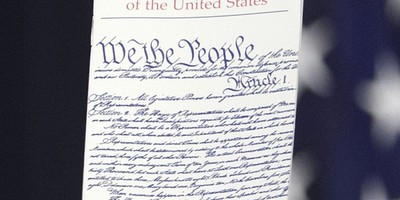"It's been described as the most serious financial crisis since the Great Depression. And it brings with it grave dangers for all American families ... ," said Martin Bashir on "Nightline." "Recession looms .... "
On the "Today" show June 20, David Faber referred to "the recession ... these tough economic times." Yet that very day first-quarter GDP was revised upward again to 1 percent.
America is not in recession, and who knows -- maybe we'll be less likely to have one if my compatriots would just chill. A recession is defined as two quarters of negative economic growth. We haven't even had one quarter of negative growth.
Yes, growth has slowed, and many people are suffering because of falling home prices and higher food and energy prices. These are real problems, but watching TV, you'd think we were in a recession so severe it must be compared to the Great Depression.
Maybe I was just watching at the wrong times and just catching some outliers? No. A study by the Business and Media Institute (BMI) found that ABC, CBS and NBC regularly "hyped similarities to the Great Depression."
BMI took a novel approach. It compared the economic-news coverage by the New York Times, Wall Street Journal and Washington Post from Oct. 28 to Nov. 3, 1929, around the time of the stock market crash, with the coverage by ABC, CBS and NBC from March 13 to 19 of this year.
"The difference between how the 1929 and 2008 media handled a crisis was profound -- with modern journalists hyping every event." Today's coverage is much more alarmist. In 2008, few reporters pointed out "the differences between today's economy and the nation's darkest economic years, or bothered to note that America is not in a depression."
Recommended
So let me stop here to repeat that. We are not in a depression. We are not even in recession. Get a grip, guys. We ought to point out that whatever today's problems bring, we are far away from reliving the Depression.
As Amity Shlaes points out in her book "The Forgotten Man: A New History of the Great Depression" -- which has just been released in paperback -- by November 1933, unemployment had skyrocketed to over 23 percent. Think about that: 5 percent unemployment today vs. 23 percent during the Depression. Amidst today's talk of stock market "collapse," remember that during the Depression, the Dow plummeted to 90, a loss of nearly 75 percent of its previous value. "This downturn is to the Depression as a drizzle is to Katrina," says Shlaes, senior fellow at the Council on Foreign Relations. "In the Depression, America confronted deflation. There literally wasn't enough money. People made their own scrip, Monopoly money, to pay their bills. In Utah, they made a currency called the Vallar. Today, we are in an inflation. If this period is like anything, it is like the 1970s."
Positive news doesn't fit the narrative. On a day the Dow rose, writes BMI's Dan Gainor, ABC "Reporter Dan Harris seemed puzzled during the ... broadcast of 'World News with Charles Gibson' when he asked: "The sky is not falling. Why not?"
All three major broadcast networks are culpable. But BMI says CBS was the worst. That's typical when it comes to economic coverage, BMI added. "Business reporter Anthony Mason was even called 'the grim reaper' by his own anchor Katie Couric." "Early Show" co-host Julie Chen talked about "a world financial crisis" as if a "crisis" was just a given.
The state of economic reporting in this country is abysmal. We might laugh at it if it didn't have bad consequences. But the more people hear such inappropriate comparisons, the more apt they are to believe them and change their behavior accordingly -- investing less and taking fewer economic risks -- thereby aggravating bad economic conditions.
No wonder, as the Associated Press reported, "U.S. consumers are the gloomiest they've been since the tail end of the last prolonged recession."
I am not saying the 1929 coverage was great; looking back, much of it was naive. I'm also not saying there are no economic problems today. But today's problems are no excuse for reporters to make glib comparisons to the Great Depression.

























Join the conversation as a VIP Member